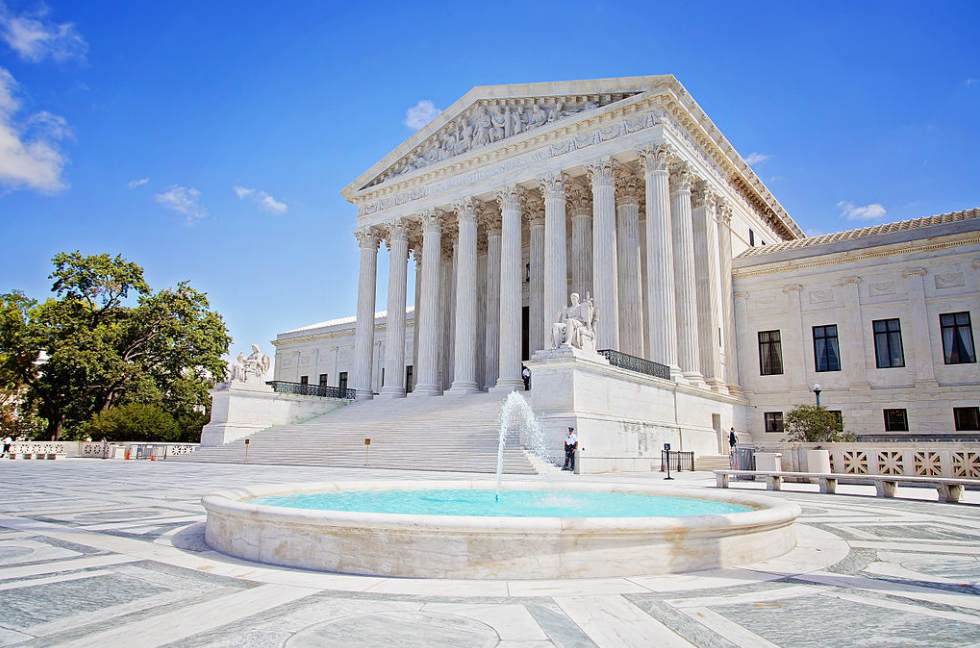The emperor is naked, and the Supreme Court just told Alabama to shut up about it.
Hans Christian Andersen told a tale once about an emperor who received a “new set of clothes” designed by the medieval fashion gurus. The clothing experts held out their empty hands and went on and on about how beautiful the clothes were. Before long, the emperor and his advisors went on about it too. The emperor went to change clothes and came out with his “new clothes” on. He then held a parade to show them off, and the crowd cheered. That is, until a little kid pointed out the obvious truth that all the grown-ups had been too embarrassed to say: the emperor didn’t have any clothes on at all.
The same fundamental problem plagued the Supreme Court’s decision Thursday in Allen v. Milligan.
The U.S. Supreme Court has been interpreting the Voting Rights Act incorrectly for nearly 40 years, pretending that its approach is not only correct but coherent. The truth is that Alabama lost in Milligan because the Supreme Court pretends its precedents are valid and coherent when they are anything but that.
For those unfamiliar with this case, Alabama made some very minor adjustments during the 2020 census to the same congressional districting map that we’ve had since 1992. The map was immediately challenged, arguing that the legislature could have made two majority-black districts but declined to do so.
It would be one thing if the legislature came along and broke up a community of black people because they were black and did not want them voting together. But when you can’t create a second district unless you consider race above all other factors, and even then, it’s difficult, it starts to look more like racial gerrymandering than freedom from racial discrimination. Nevertheless, the Supreme Court voted 5-4 to uphold the challenge to Alabama’s map, even though this would require Alabama to engage in racial gerrymandering.
Did that last phrase set off any red flags in your mind? Good—it should. Gerrymandering generally has a bad connotation to it, and doing it for racial purposes is definitely unconstitutional, right?
That’s what we thought. The Alabama Center for Law and Liberty filed an amicus brief in this case arguing that the Constitution itself requires a color-blind approach and that actively discriminating between citizens based on race is unconstitutional. That’s exactly what Justice Clarence Thomas, who for decades was the only black justice on the Court, has been arguing for over 30 years.
So how did the Court deal with that problem?
Well, first, it agrees that it’s unconstitutional to actively discriminate on the basis of race in drawing districts. But starting in the 1980s, the Court interpreted Section 2 of the Voting Rights Act to prohibit drawing congressional districts in a way that would dilute the black vote. Sounds innocuous, right?
But the question then becomes: What is the measurement for whether a vote is “diluted” or not? The only way to measure that is to look at race. The Alabama Attorney General’s Office rightly protested this problem, but it fell on deaf ears.
So now, the only way for the states to comply with the Voting Rights Act, in my opinion, is to consider race above everything else — even though the Constitution prohibits it.
That’s racist! That’s unconstitutional! The emperor has no clothes! How do the justices not see that?
The answer comes down to the fact that there’s about 40 years of bad Supreme Court precedent in the way. Conservative judges often struggle with what to do with the doctrine of precedent when it contradicts the Constitution or a statute. That’s exactly why the six conservative-leaning justices had six different approaches in this case.
But at the end of the day, the matter really is simple. Justice Thomas gets it right: if a precedent is clearly erroneous, a court should not follow it. If the emperor is clearly naked, then we should not pretend he is clothed, even if we’ve been pretending it for 40 years. It’s bold and often seems dangerous. But after Thursday’s decision, I think the Court has left us no choice except to take that approach by directly challenging the bad precedents and arguing unequivocally that they should be overruled.
In the meantime, Alabama might have to redraw its map and be subject to another game of judicial peek-a-boo (as Justice Scalia might say). Alabama Attorney General Steve Marshall pointed out that this case is not over, and I commend him for being willing to keep up the fight. But if our map or a map like ours goes back up to the Court, perhaps bluntly telling the justices that the emperor has no clothes will get them to wake up, see the absurd situation they have created, and get them to take the necessary action to fix it.
Matt Clark is the President of the Alabama Center for Law and Liberty, a conservative nonprofit law firm that fights for limited government, free markets, and strong families in the courts. His column appears every Friday in 1819 News. The opinions expressed in this column are those of the author. The views and opinions expressed here are those of the author and do not necessarily reflect the policy or position of 1819 News. To comment, please send an email with your name and contact information to Commentary@1819News.com.
Don't miss out! Subscribe to our newsletter and get our top stories every weekday morning.








